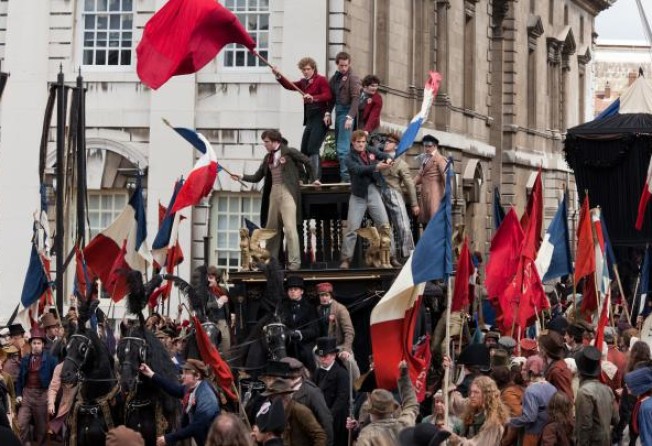
Movie review: Les Misérables
Universality is what makes Les Misérables such a timeless classic

Les Misérables is one of the best loved and most enduring musicals ever made. The French original premiered in Paris in 1980 and the English version arrived on Broadway a few years later. Based on Victor Hugo’s eponymous novel, the musical centres around the character Jean Valjean, a French peasant who spends two decades in jail for stealing a loaf of bread and decides to start a new life by breaking his parole, all the while being pursued by police inspector Javert. Set in the early years of post-revolution France, the story exposes the social injustice and class struggles of the time and explores such universal themes as law, mercy and redemption.
I grew up knowing every word of every song in Les Mis. Tunes like Do You Hear the People Sing? and On My Own were the anthems of my adolescence. I have seen the productions in New York, London, Toronto, Paris and Madrid, performed in English, French and Spanish. I know the musical so well that when I first heard the news about a film adaptation in 2009, I was filled with excitement and apprehension in equal measure. Taking such a celebrated musical to the silver screen is no small feat. On the arduous road from stage to screen, the movie can either go the way of multi-Oscar winners like The Sound of Music, West Side Story and Chicago, or land with a thud as did The Phantom of the Opera and Rent.
English director Tom Hooper, who won an Oscar last year for The King’s Speech, understands the challenges facing him. Characters breaking into song may work in a Disney cartoon, but it can backfire and leap into the absurd in a serious drama. To soften the edge of a sung-through movie, Hooper adopts a rather revolutionary recording method. Instead of pre-recording the songs and having the actors lip-sync them on set, the vocals are recorded live and guided by a piano accompaniment played through earpieces. It is only until post-production that that the full orchestra is added to the soundtrack and that the earpieces are digitally removed from the frame. The live recording approach allows the actors to sing at their own pace and to act out the scenes with greater freedom. The result is a much better integration between singing and acting.


With the exception of Crowe, Les Misérables hits all the right notes. It will go down in movie history as one of the most successful musical-to-movie adaptations. It also sets a high bar for future projects to come: Cats? Miss Saigon? Wicked? Though so much has been said about the ensemble cast and the recording techniques, the movie still owes much of its success to Victor Hugo. His timeless story reminds us that freedom and equality come not from the generosity of the state but the hands of the people who die fighting for them. We saw the French Revolution unfold on the streets of Egypt, Syria and Libya last year. We hear the battle cry for social justice and wealth redistribution get louder by the day in Hong Kong and Mainland China. Its universality is why Les Mis never gets old.